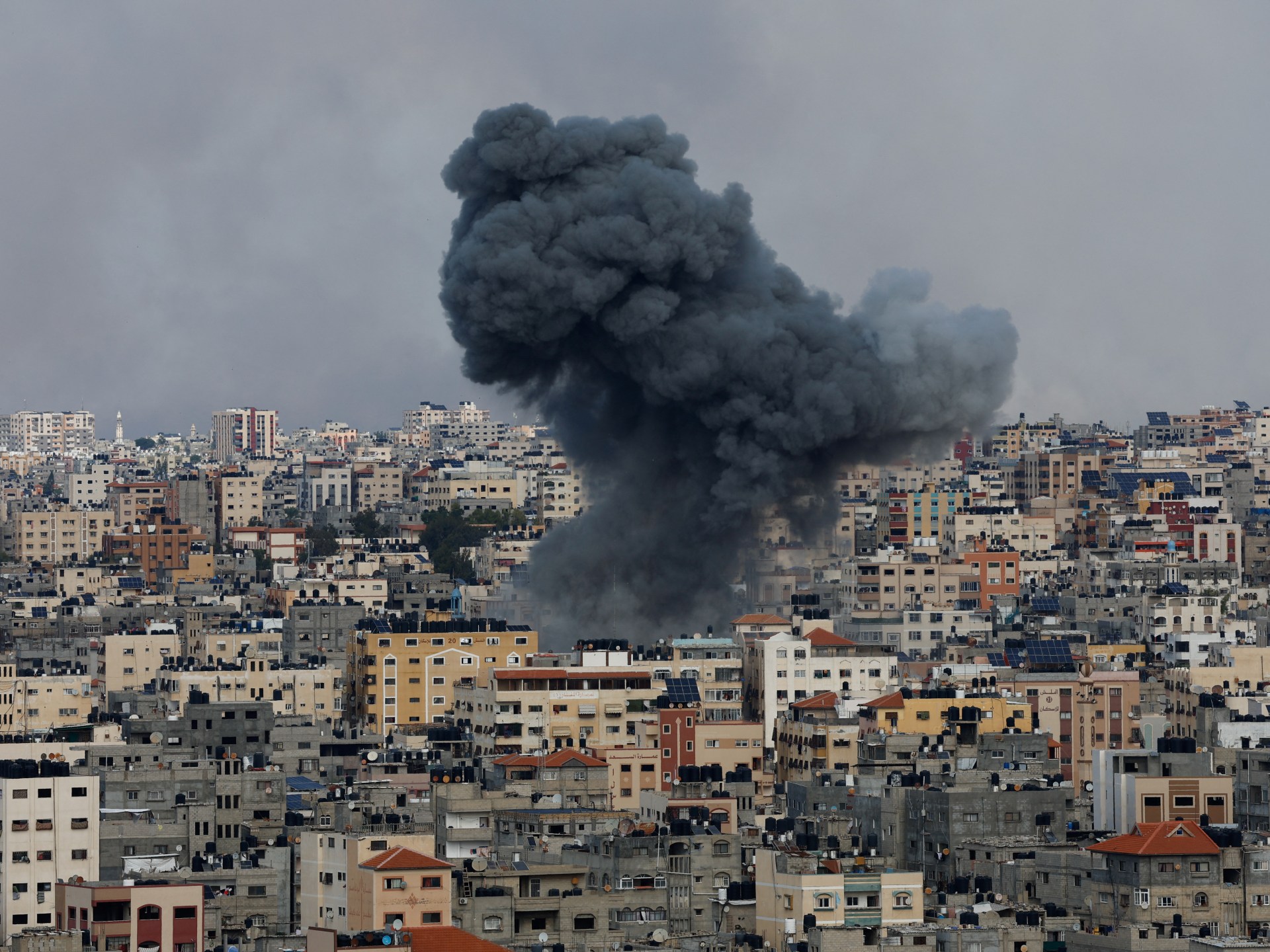Israeli Politics and Society: Israeli News

Israel’s political landscape is a complex tapestry woven with threads of ideology, religion, and geopolitics. The country has a long history of political instability, with frequent elections and shifting alliances. This dynamic environment reflects the diverse viewpoints and aspirations of its citizens.
Major Political Parties and Key Figures
The Israeli political scene is dominated by a few major parties, each representing distinct ideological perspectives.
- Likud: A right-wing party led by Benjamin Netanyahu, known for its hawkish stance on security and its commitment to expanding Israeli settlements in the West Bank.
- Yesh Atid: A centrist party founded by Yair Lapid, focusing on social and economic issues and advocating for a two-state solution to the Israeli-Palestinian conflict.
- Blue and White: A centrist party led by Benny Gantz, aiming to unite the country and address social and economic inequalities.
- Joint List: A political alliance of Arab parties, representing the interests of Israel’s Arab citizens and advocating for equal rights and social justice.
Recent elections have been marked by political gridlock and the rise of smaller parties, making it challenging to form stable governments.
Impact of Social and Cultural Issues
Social and cultural issues have a profound impact on Israeli politics, shaping the political discourse and influencing the priorities of different parties.
- Religious Freedom: The debate over the role of religion in public life is a major political issue. Orthodox Jews, who hold significant political power, often advocate for stricter religious laws, while secular Israelis push for greater freedom and separation of religion and state.
- LGBTQ+ Rights: Israel is generally considered to be progressive on LGBTQ+ rights, but there are still ongoing debates about issues such as same-sex marriage and discrimination.
- The Palestinian Conflict: The Israeli-Palestinian conflict remains a central issue in Israeli politics, deeply dividing society and shaping the priorities of different political parties.
Overview of the Israeli Economy
Israel boasts a strong and innovative economy, with key industries such as technology, agriculture, and tourism.
- High-Tech Industry: Israel is known as a global leader in technology, with a thriving start-up scene and major tech companies like Intel and Google establishing significant operations in the country.
- Agriculture: Despite its limited land area, Israel has developed advanced agricultural techniques, making it a major exporter of agricultural products.
- Tourism: Israel is a popular tourist destination, attracting visitors from around the world who come to experience its historical sites, cultural attractions, and diverse landscapes.
Challenges facing the Israeli economy include high cost of living, income inequality, and the need to diversify its economy beyond the tech sector.
Israeli-Palestinian Conflict

The Israeli-Palestinian conflict is a complex and deeply rooted struggle over land, resources, and identity. Its roots lie in the early 20th century, a time when both Israelis and Palestinians laid claim to the same territory. The conflict has escalated and de-escalated throughout the decades, with periods of violence and bloodshed interspersed with attempts at peacemaking.
Historical Context
The historical context of the Israeli-Palestinian conflict is marked by key events and turning points that have shaped the present-day situation. Here’s a brief timeline:
- Early 20th Century: Zionism, a movement advocating for a Jewish homeland in Palestine, gained momentum. At the same time, Palestinian Arabs, who had inhabited the land for centuries, faced increasing pressure from Jewish immigration.
- 1947: The United Nations Partition Plan proposed dividing Palestine into two states, one Jewish and one Arab. The plan was accepted by Jewish leaders but rejected by Arab leaders.
- 1948: The British Mandate over Palestine ended, and the State of Israel was declared. The 1948 Arab-Israeli War broke out, resulting in the displacement of hundreds of thousands of Palestinians, known as the “Nakba” (Catastrophe).
- 1967: The Six-Day War saw Israel capture the West Bank, East Jerusalem, Gaza Strip, Golan Heights, and Sinai Peninsula.
- 1973: The Yom Kippur War saw Egypt and Syria launch a surprise attack on Israel, leading to a stalemate.
- 1979: The Israel-Egypt Peace Treaty was signed, marking the first peace treaty between Israel and an Arab state.
- 1993: The Oslo Accords were signed, aiming to establish a Palestinian state alongside Israel.
- 2000: The Second Intifada erupted, characterized by violent clashes between Israelis and Palestinians.
- 2005: Israel withdrew its forces and settlements from the Gaza Strip.
Perspectives on the Conflict
Both Israelis and Palestinians have distinct narratives and demands, shaped by their historical experiences and political aspirations.
- Israeli Perspective: Many Israelis view the conflict as a struggle for survival, citing historical persecution and the need for a secure homeland. They emphasize the importance of maintaining control over key territories, including Jerusalem, for security and historical reasons.
- Palestinian Perspective: Palestinians view the conflict as a struggle for self-determination and the right to return to their ancestral lands. They emphasize the injustices they have suffered, including displacement, occupation, and restrictions on movement.
Peace Efforts and Potential Solutions
Numerous peace efforts have been undertaken to resolve the Israeli-Palestinian conflict. These efforts have included:
- The Oslo Accords (1993): This agreement aimed to establish a Palestinian state alongside Israel through a phased approach, but it ultimately failed due to disagreements over land, security, and the status of Jerusalem.
- The Road Map for Peace (2003): This plan called for a two-state solution, with a Palestinian state existing alongside Israel. However, it was hampered by political instability and violence.
- The Arab Peace Initiative (2002): This proposal offered Israel full normalization with Arab states in exchange for a complete withdrawal from all occupied territories, including East Jerusalem.
Different approaches to resolving the conflict have been proposed, each with its own feasibility and challenges:
- Two-State Solution: This remains the most widely supported option, involving the creation of an independent Palestinian state alongside Israel. However, it faces challenges related to land division, security arrangements, and the status of Jerusalem.
- One-State Solution: This approach envisions a single state encompassing both Israelis and Palestinians, with equal rights and representation. However, it raises concerns about the potential for demographic imbalances and the possibility of conflict within a single state.
- Confederation: This option suggests a loose federation between Israel and a Palestinian state, allowing for cooperation on certain issues while maintaining separate identities and governance. However, it remains a less explored and less widely supported option.
Israeli Culture and Lifestyle

Israel is a vibrant tapestry woven from diverse threads of culture and heritage. It’s a melting pot where ancient traditions blend with modern trends, creating a unique and captivating lifestyle.
Cultural Heritage
Israel’s cultural heritage is a rich mosaic, reflecting the country’s diverse population and historical experiences. The dominant influence is Jewish culture, with its ancient traditions, religious practices, and literary heritage. However, the country also boasts a significant Arab population, contributing their own cultural traditions, languages, and culinary delights.
Cuisine
Israeli cuisine is a delectable fusion of flavors, reflecting the country’s diverse cultural influences. Hummus, falafel, and shawarma are iconic street food staples, while traditional dishes like cholent (a slow-cooked stew) and gefilte fish (a poached fish dish) showcase Jewish culinary heritage. Arab influences are evident in dishes like shakshuka (eggs poached in a spicy tomato sauce) and knafeh (a sweet cheese pastry).
Music
Israeli music is a vibrant mix of genres, ranging from traditional klezmer music to modern pop and rock. Popular Israeli artists like David Broza, Ofra Haza, and Yehuda Poliker have gained international recognition, showcasing the country’s diverse musical landscape.
Art and Literature, Israeli news
Israel has a thriving art scene, with renowned museums like the Israel Museum in Jerusalem and the Tel Aviv Museum of Art showcasing both contemporary and historical works. Israeli literature is rich and diverse, with acclaimed authors like Amos Oz, David Grossman, and A.B. Yehoshua exploring themes of identity, conflict, and the human condition.
Daily Life
Israel’s daily life is characterized by a unique blend of modernity and tradition. The country has a strong sense of community, with families and friends playing a significant role in people’s lives. Israel is also a highly technologically advanced nation, with a thriving tech industry and widespread use of smartphones and the internet.
| Aspect | Israel | Other Countries |
|---|---|---|
| Social Customs | Strong emphasis on family and community, with frequent gatherings and celebrations. | Varies widely, with some cultures emphasizing individualism while others prioritize collectivism. |
| Values | Strong sense of patriotism, resilience, and a belief in the importance of education. | Varies widely based on cultural and religious beliefs. |
| Technology | Highly technologically advanced, with widespread use of smartphones, internet, and digital services. | Varies widely, with some countries having more advanced technological infrastructure than others. |
Staying informed about Israeli news is crucial, especially given the complex political landscape. While international events demand attention, it’s also important to keep an eye on domestic affairs, like the work of Governor tim walz in Minnesota. Understanding the political climate in different regions allows for a broader perspective on global events, including those unfolding in Israel.
Staying informed about global events is crucial, and understanding the complexities of the Middle East is particularly important. Israeli news provides a valuable window into the region, offering insights into political, social, and economic developments. To delve deeper into this multifaceted region, explore israeli news , which can provide a comprehensive understanding of the current landscape.
